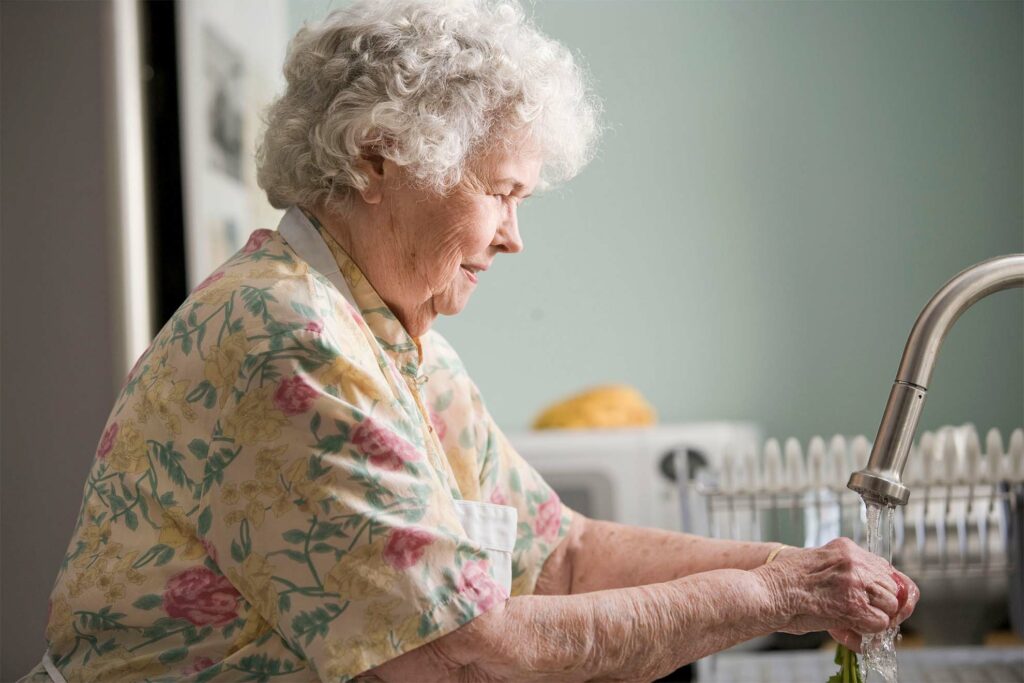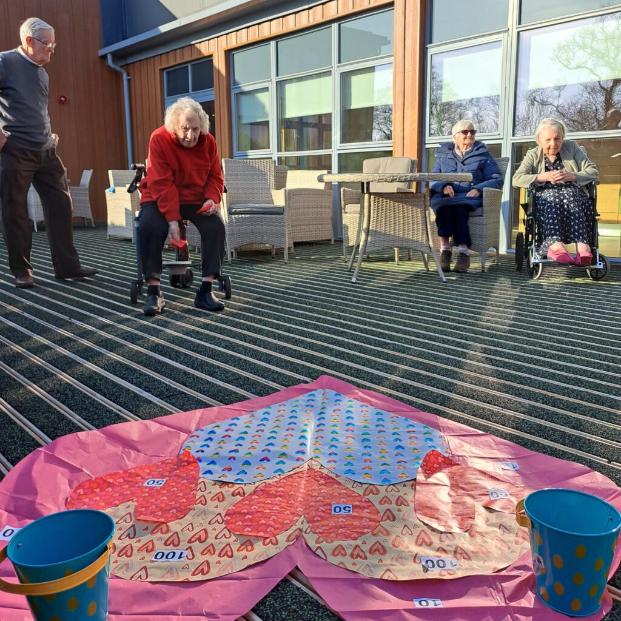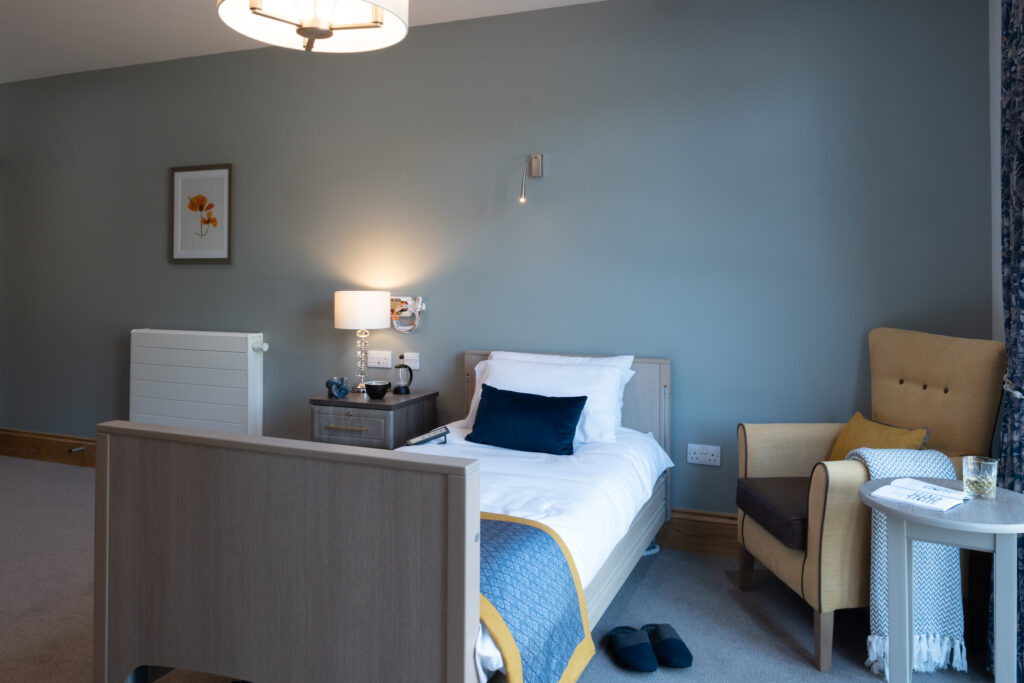How Much Do Care Homes Cost in the UK?

As an ageing population, the demand for care homes in the UK continues to increase. With average care home fees being one of the highest in Europe, it can be difficult for care seekers and their families to know what they should expect to pay when it comes to care costs. In this blog, we will explore the average cost of care home fees in the UK, what is included in those fees, different types of care, finance options, and what financial support is available.

Average Care Home Fees Across the UK
In the UK, care costs vary depending on the location, facilities, and level of care provided. Location plays a big part when it comes to the cost of your care, with studies showing that care homes in London cost significantly higher than the average, and care homes in the North East of England are at the lower end of the spectrum.
How Do Care Homes Structure Their Fees?
Care homes in the UK can structure their fees in different ways, depending on the type of care provided and the services offered, making it difficult for families to be able to compare costs. Some care homes offer a fixed rate per week or per month, while others charge on a 'pay as you go' basis.
In addition to the basic care home fees, there may also be additional charges for extras such as hairdressing, chiropody, or social activities so it is worth checking with each care home what their fees include.
Residential Care Fees
Residential care home costs include accommodation, meals, and personal care services for people who need assistance with daily living activities such as washing, dressing, and eating.
Residential care is typically offered at a flat rate but may also include additional services such as housekeeping, laundry, and social activities.
Nursing Care Fees
Nursing homes or residential care homes that also provide nursing care typically charge more for their nursing care costs which include accommodation, meals, support services, and nursing care.
Those who receive nursing care usually require more intensive support and medical care on a 24-hour basis and as a result, nursing home costs tend to be higher than residential care homes.

Respite Care Fees
Respite care fees also differ as its a service that is provided to individuals on a short-term basis as a solution for temporary support, such as those recovering from an illness or surgery.
This type of care can also be provided as a solution to allow caregivers a break and is a service that supports people with daily living activities.
Respite care home fees are typically charged on a daily or weekly basis, and the cost may vary depending on the length of the stay and the level of care required.
What is Included in Care Home Fees?
The cost of living in a care home or nursing home can cover a range of services and amenities, including accommodation and meals as well as medical care and physical and mental support services. However, it's important to check with the individual care home to find out exactly what is included in their fees.
Some care homes provide an all-inclusive way of living, whilst other care homes and nursing homes provide additional services at an extra cost, such as social activities, hairdressing, and transportation.
All-Inclusive Care Homes
All-inclusive care homes are becoming more popular in the UK as they offer a flat fee, which includes all services and amenities, such as accommodation, meals, personal and medical care, and social activities.
Despite typically being a more expensive care home, there are plenty of advantages to those that offer an all-inclusive way of living, such as families having more certainty around care costs and avoiding any unexpected charges and hidden fees.
With the cost of living increasing, it can also be reassuring to know that an all-inclusive care home can provide all the care and support that is required, without having to worry about paying for utility and energy bills and household management, as well as any additional daily costs.
However, it's important to check the individual care home's fee structure to understand exactly what is included in their flat fee.
Who Pays for Care Home Costs?
When it comes to moving into a care home or nursing home, fees are typically paid for by the individual who requires care, although in some cases, the local authority may contribute and help pay care home fees. If an individual has assets above a certain threshold, they may be required to provide their own care funding.
In some cases, family members may also contribute towards care costs. It's important to undergo a financial assessment or speak to an independent financial advisor to understand the different options available.

Can I Get Financial Help Towards the Cost of My Care Home Fees?
There are certain circumstances where individuals are able to get financial help towards the cost of their nursing home or care home fees. The first option is to apply for a means-tested contribution from your local council. This will be based on an assessment of the individual's assets and income. The local authority will only contribute towards the cost of your care if income and assets fall below a certain threshold.
Another option is to apply for NHS Continuing Healthcare (CHC) funding. This is available to individuals with significant healthcare needs and requires a healthcare professional to assess their eligibility.
Finally, some individuals may be eligible for a deferred payment agreement. This means that the local authority pays towards any care home fees, and the individual will pay this back when they sell their home or after they pass away.
It's important to note that financial help is not guaranteed and eligibility can vary depending on individual circumstances. It's important to have a financial assessment or seek help from an independent financial advisor or local authority to understand the options available.
What is Local Authority Funding?
Care home or nursing home funding by local authorities refers to the financial assistance provided by the local council to individuals who require care but are unable to pay for it themselves. This funding is means-tested, which means it's based on a financial assessment of the individual's assets and income.
If an individual is deemed eligible for funding from the local council, then the council pay towards the cost of their care home fees. However, the amount of funding provided by the local council will depend on the individual's circumstances and can vary between each local council.
Funding provided by the local authority can cover the cost of basic care home services, such as accommodation, meals, and personal care. However, it's important to note that not all care homes will accept local council funding. Some care homes may have specific eligibility or may only accept privately paying residents.
It's important to acknowledge that funding from the local authority may not cover the full cost of care home fees and a top-up fee may be required. If an individual's income or assets exceed a certain threshold, they may be required to provide the remaining cost of their care themselves.
It's also worth noting that local authority funding may not cover the cost of additional services or amenities, such as transportation, social activities, or personal items. If an individual requires these services, they may need to pay for them separately or look for a care home that offers them as part of their fee structure.
What is NHS Funding?
NHS funding for care homes is also known as NHS Continuing Healthcare Funding (NHS CHC). It's a package of care and support provided by the NHS to individuals who have significant healthcare needs.
Funding provided by NHS Continuing Healthcare can cover the cost of nursing home and care home fees, as well as other healthcare-related expenses. It's not available by the means test, which means eligibility is based solely on an assessment of an individual's healthcare needs.
To be eligible for NHS-funded nursing care, an individual must have complex, ongoing healthcare needs, such as a severe disability, long-term illness, or terminal illness. The eligibility assessment is conducted by a healthcare professional, such as a registered nurse or doctor, and is based on evaluating the individual's care needs and the complexity of the care required.
If an individual is deemed eligible for NHS-funded nursing care, the NHS pays the full cost of their care fees, including accommodation, meals, personal care, and nursing care. It can also cover other healthcare-related expenses, such as medical equipment and medication.
It's important to note that NHS Continuing Healthcare funding is not guaranteed, and eligibility can vary depending on individual circumstances. If an individual is not eligible for NHS CHC funding, they may still be eligible for other types of financial support, such as funding from their local authority or deferred payment agreements.
What is Self Funding?
Self-funding for care homes is when an individual or their family pays their care cost without any financial support from their local authority or the NHS. This means that the individual or their family is responsible for covering the full cost of their care, including accommodation, meals, personal care, housekeeping, and any other services or amenities provided by the care home or nursing home.
This type of funding is often an option for individuals who have savings and assets that they can use to pay for their care. It can also be an option for individuals who do not meet the eligibility criteria for a local council or NHS funding.
The cost of care home fees can be affected by the location, size, and amenities of the care home, as well as the level of care required. It can be a significant financial commitment to be a self-funder, and it's important to carefully consider the costs and options available before making a decision.
Care & Costs Valerian Court Care Home



At our care home in Didcot, we provide all-inclusive care, meaning that the cost of our care services, accommodation, meals, in-house facilities, and social activities are all covered by one flat fee. The cost of our care services relates to the assessment of care needs that we complete prior to a resident moving in. This assessment highlights the level of support and medical care required for the individual and determines the appropriate fees.
We provide a range of around-the-clock care types including Residential Care, Nursing Care, Dementia Care, and Respite Care and residents also have access to a number of additional medical services to ensure their well-being is always supported. Our home has been purpose-built and specially designed to meet our resident's every health and well-being need. With a dedicated and highly skilled team available at all times too, we are able to provide the highest quality care and support to our residents.
It is important to us that our residents thrive while staying with us here at Valerian Court Care Home, which is why we have created a home that offers a warm and luxurious environment, first-class facilities, and person-centred care. As well as access to our in-house facilities such as our rooftop garden, café, and cinema, we also provide residents with a weekly activities programme that is full of themed events, active sessions, and visits from entertainers and members of the community. We want our residents to have plenty of opportunities to continue with their hobbies, pursue new interests, and socialise with others.
We are here to provide support to not only our residents, but their families too, and we welcome loved ones to get as involved with life at our care home as they wish. We are proud to provide a continuum of care, meaning as individual needs change over time, we adapt the care we provide while collaborating with residents and their families. At Valerian Court Care Home, you can rest assured that we are here to support you every step of the way.



Find Out More
If you have any queries regarding the cost of your care or the services we provide here at Valerian Court Care Home, then we welcome you to get in touch with us by emailing info@valeriancourtcare.co.uk or calling 01235 616800. You can also fill out our online form which can be found on our contact page, and a member of our team will get back to you right away.






